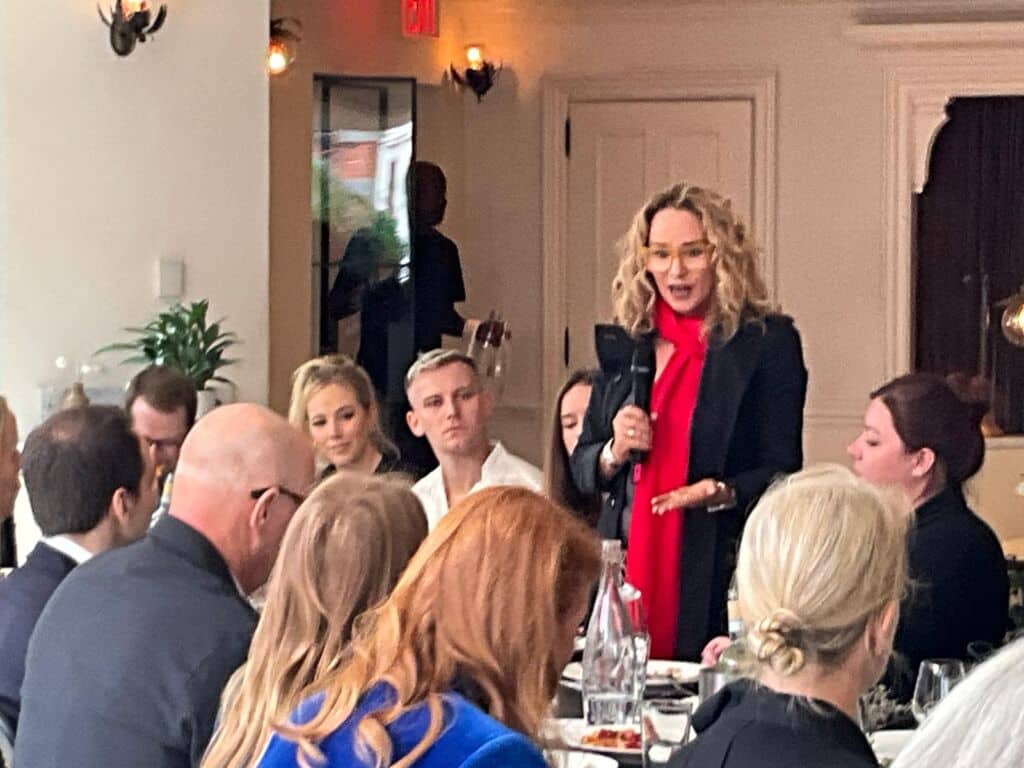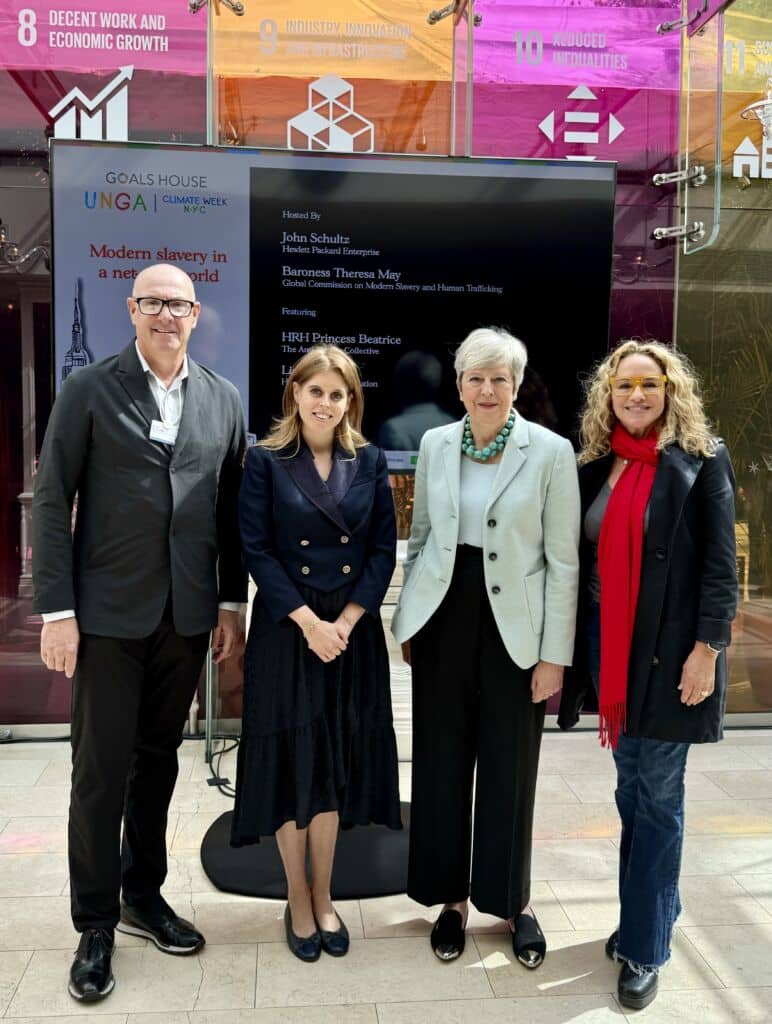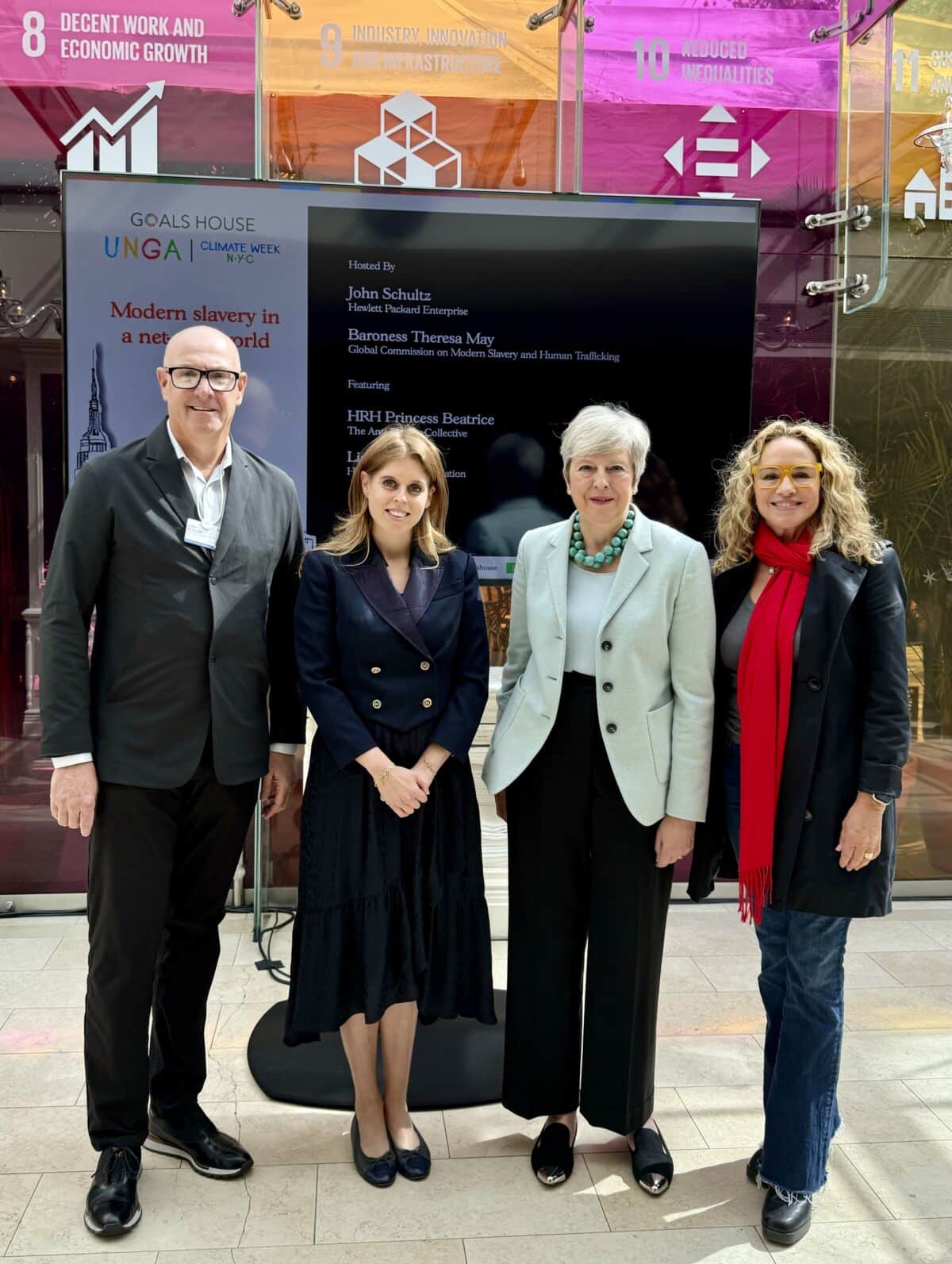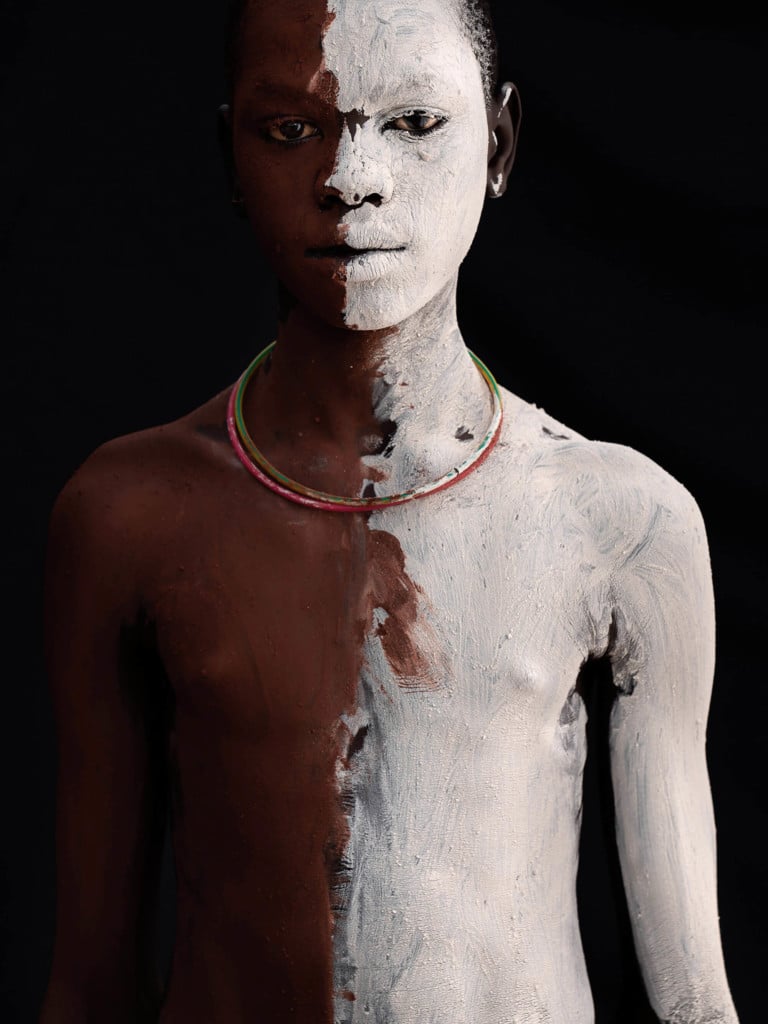During Climate Week at the UN General Assembly, I had the profound honor of joining a gathering of incredible changemakers at the Goals House HQ. Co-hosted by HRH Princess Beatrice representing TASC, Hewlett Packard Enterprise, Theresa May’s Global Commission on Modern Slavery, and my own Human Thread Foundation, the event was a powerful moment to reflect on our shared fight to end modern slavery.

Once entrapped, these individuals are often forced into hazardous and illegal industries such as deforestation, illegal fishing, and unregulated mining. Not only do these practices devastate human lives, but they also inflict irreparable damage on our environment. It’s a vicious cycle where environmental harm leads to human exploitation, which in turn leads to further environmental degradation.
What moved me deeply were the insights shared by my fellow speakers:
- John Schultz of Hewlett Packard Enterprise continues to pioneer efforts in addressing forced labor within supply chains. His unwavering commitment is a testament to the impact one person can have when driven by purpose.
- Alan Jope, former CEO of Unilever and Global Commissioner, shed light on the glaring lack of accountability in corporate supply chains. He emphasized the urgent need for stronger legal consequences to combat forced labor effectively.
- Sharon Prince, CEO of Grace Farms Foundation, spoke poignantly about the “slavery discount”—the unethical profit margins companies gain from cheap, exploitative labor. Her call to dismantle this practice resonates deeply with the core of our mission.
- Asmita Satyarthi, CEO of the Satyarthi Movement for Global Compassion, shared a harrowing story of a trafficked child. Her powerful question, “What if this was your child?” serves as a profound reminder that behind every statistic is a human life, a future stolen.
These discussions transcend mere dialogue; they are catalysts for the actions we must take to uncover and eliminate forced labor in all its forms. As we confront the dual crises of climate change and modern slavery, it’s clear that our solutions must be as interconnected as the problems themselves.

Let us continue to push forward, not just for the planet, but for the very fabric of humanity. Together, we can weave a future where freedom and sustainability are not just ideals but realities for all.
With hope and determination,
Lisa Kristine


